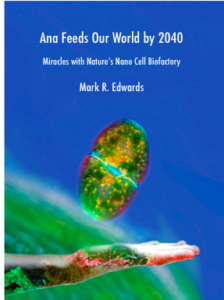This year Congress is debating a new Farm Bill, legislation that for years has supported agricultural industries, rural communities, and the American foods supply.
Algae are fast becoming a significant component in food and health products, and it is time that this new crop was afforded the support by the U.S. Department of Agriculture that other crops have seen for decades.
Thanks to outreach by ABO and its members, a number of provisions are being considered in the new Farm Bill that could dramatically accelerate algae farming in the U.S., bringing economic benefits to rural areas and sustainable solutions to the world:
1. Algae Research Initiative – Included in section 7208 of the House-passed bill, would establish for the first time an Algae Agriculture R&D program at USDA to complement existing work at the Department of Energy. A Senate floor amendment (SA 3205) further strengthening the House provision was introduced by Senators Cornyn and Udall but not included in the final Senate bill. Urge your representatives in Congress to include Senate Amendment 3205 in the final Farm Bill package.
2. Crop Assistance for Algae – The absence of an established crop insurance program for algae production may be the single greatest barrier to the establishment of new algae farms and the expansion of existing farms. Section 9 of H.R. 5373, the Algae Agriculture Act, includes two key, no-cost provisions that would begin to pave the way for algae crop insurance. Section 9 of H.R. 5373 should be included in the final Farm Bill package.
3. Elimination of Algae BCAP Exclusion – Algae is excluded from Collection, Harvest, Storage and Transportation (CHST) payments under the Title IX Biomass Crop Assistance Program (BCAP). This exclusion is eliminated under section 9110 of the Senate-passed bill. Section 9110 of the Senate-passed bill should be included in the conference report.
4. Recycled Carbon Provisions – The Senate-passed bill includes important provisions in support of algae and other Carbon Capture and Use (CCU) applications in rural America. Several additional definitional changes outlined in section 8 of H.R. 5373, the Algae Agriculture Act, and the Bennet-Whitehouse Senate floor amendment SA 3342 are also needed to ensure eligibility of recycled-carbon products. SA 3342 and Sections 7409, 9103, and 9113 of the Senate-passed bill should be included in the conference report.
Help us get algae into the Farm Bill! Contact your representatives today and tell them to support these four key asks.
These provisions are being discussed now, so be sure to make your voice heard soon!
Find your House representative’s phone numbers here.
Find your Senators’ phone numbers here.
Find their Twitter handle here.
Find their Facebook page here.

 ABO members are invited to get their free copy of a new book that makes the case for algae as a solution to intractable problems in the global food supply chain.
ABO members are invited to get their free copy of a new book that makes the case for algae as a solution to intractable problems in the global food supply chain. This helpful article
This helpful article